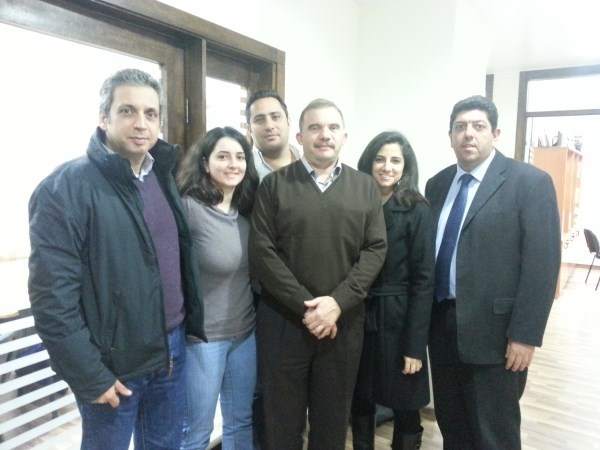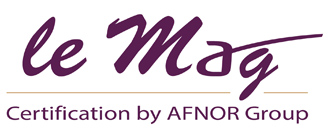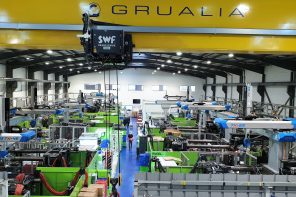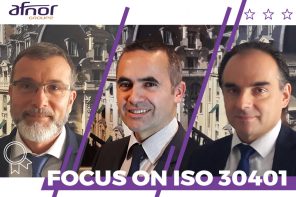
© DR
After Morocco and China, time now to focus on the Lebanon as Rashid Mubarak, head of the AFNOR Middle East unit based in Beirut, gives us a few tips on developing business there. An article in the March-April 2017 edition of the Classe Export magazine.
What kind of welcome is reserved for the French who want to do business in the Lebanon?
The crises that neighboring countries are going through clearly have an impact on the Lebanese economy. However, the historical relations between the Lebanon and France smooth the way for the French who want to work there. France is also the country’s 4th biggest supplier.
A French product is recognized here and creates trust, but we should bear in mind that this product will be in competition with others from around the world. In-depth market research is essential beforehand, as is having a good business partner to avoid the pitfalls arising from dealing with the authorities, taxation, where to locate your office and your sales room, etc. So how can this kind of partner be found? Well, half of all the Lebanese are business people, so that’s easy! Joking aside, we can call on the French embassy but also the ESA business school, which is able to facilitate contacts.
Without getting into stereotypes, what specific cultural aspects should a European be aware of when they arrive?
At the risk of over-generalizing, I would say that Europeans are as individualistic as the Lebanese are community focused. Here, we have an extended notion of the family, which includes the neighborhood, colleagues and so on. Hospitality is really important. When we invite someone, we must show that we are generous, that we are part of a group, that we don’t just work for ourselves but for the good of the community to which we belong. So when a European is invited by a Lebanese person, they should accept and feel free to reciprocate.
So, the door is open?
Yes, for the French as for business people worldwide. The market is wide open for companies in the AFNOR ecosystem. Household appliances, for example, pass through a state laboratory prior to marketing. If they carry CE marking it’s easier. But Canadian certification is also accepted. A further example: in the construction field, the legislation imposes technical inspections of buildings and European, French and US standards are cited. So calling on AFNOR standards can help indirectly, especially because we are known here and partners of the Lebanese Standards Institution (LIBNOR).
Market access is different from the way things are done in France. If you want to sell a new type of glazed facade in France, for instance, you have to submit it for a technical opinion and then wait for the response before you can start marketing, which may take up to a year. This kind of thing simply doesn’t exist in the Lebanon. If the product is new and unknown on the market, it can meet with success if properly marketed. And if it is backed by certification inspired by an international voluntary standard (ISO) issued by a French organization like AFNOR Certification, it is easier to sell than with South Korean certification for example.
And how can business be developed in neighboring Arab countries?
Officially created in 2012, AFNOR Middle East is well established in the Lebanon. It has to be said that quality, environment and safety issues (including for foodstuffs) require trusted brands, and AFNOR is one of them. However, our auditors and instructors find it harder to win over people in Arab countries and those in the Gulf, which are more oriented towards the Anglo-Saxon cultures. What’s more, Asian competition is fierce and pricing is extremely aggressive. But the added value of a French brand is gradually gaining recognition. The Lebanese are well respected in Arab countries because they are multicultural and sort of viewed as offering the kind of “blend” which Arab countries are seeking. In Qatar, a Lebanese person will be treated as a European and Arabic-speaking at the same time, which breaks down cultural barriers.
Attention should also be paid to the affinities that exist between Arab countries and to avoiding blunders. I remember sending a French-speaking Tunisian auditor to Egypt, and this caused a problem. An English-speaking auditor (even Indian or European) would have probably been more in tune with the client who was himself an English speaker. I can also remember a Russian auditor being sent to the UAE on behalf of an oil concession, which he misjudged because of his poor understanding of local culture … You know, it’s been almost thirty years since I began working in intercultural environments and attending meetings in the inspection and certification sector and I learn something new every day.
[button content=”More about AFNOR in Lebanon … ” color=”yellow” text=”black” url=”http://www.lb.afnor.org” openin=”_blank”]
[button content=”Read the full interview on line (in French)… ” color=”yellow” text=”black” url=”http://www.classe-export.com/index.php/actus/19381-travailler-liban-bons-conseils-dafnor-middle-east/” openin=”_blank”]




